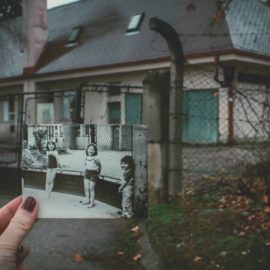
How accurate are your memories of past events? What happens to your recollections each time you recall them?
Memory isn’t the reliable recording device many assume it to be. In You Are Not So Smart, David McRaney explores how reconstructive memory works, revealing that our minds rebuild memories from scratch with each recollection, often incorporating new details and perspectives along the way.
Keep reading to discover how your memories change over time and what you can do to protect yourself from manipulation.
Reconstructive Memory
McRaney explains that our memories are often inaccurate because they’re slightly different each time we recall them. This psychological phenomenon, called the misinformation effect, occurs because, rather than existing in an unchanging state in our minds, memories are reconstructed from scratch each time we recall them. This concept of reconstructive memory means that we might forget or alter certain aspects each time we recall a memory as we’re influenced by new experiences and knowledge. For example, you’re rehashing last week’s meeting with a coworker and they mention that the boss looked annoyed—you didn’t notice this, but since your coworker mentioned it, it becomes part of your memory.
The problem of reconstructive memory suggests that your testimonies and those of others aren’t always reliable. As a result, you may inadvertently believe or spread misinformation. To overcome this, McRaney suggests using your knowledge of this error to be more skeptical about your memories and to more critically analyze them for inaccuracies and inconsistencies.
| Gaslighting: The Dangers of the Misinformation Effect McRaney explains that the misinformation effect occurs when our memories change slightly over time due to the introduction of new information. One prime example of how this phenomenon can harm you, beyond memories and testimonies being unreliable, is gaslighting. Gaslighting occurs when, over time, an abuser intentionally tries to change your memories and perceptions of reality by taking advantage of the misinformation effect. For example, they may question your memories—“You’re the one who started that fight, remember?” Or, they might lie, saying something happened when it didn’t or vice versa—“I never said I’d take you out to dinner tonight; I just said we could go on a date sometime.” While McRaney’s advice to analyze your memories for inconsistencies can be helpful in minimizing the misinformation effect, it doesn’t necessarily prevent you from being manipulated by others. In addition to McRaney’s advice, you can look for the following signs that may indicate that you’re being gaslit: You’re constantly second-guessing yourself, someone else tells you your memory is wrong without considering the accuracy of your perspective, or someone changes the events of a story you’re certain of and refuses to consider their error. |






